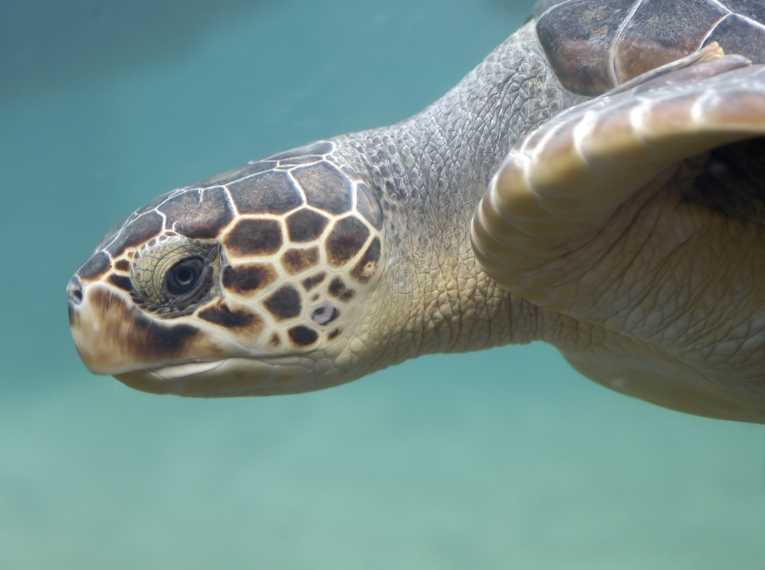The languid and lovable loggerhead turtle is one of the best known marine wanderers, equally at home in coastal waters or drifting slowly in the open ocean. These massive turtles - which can reach lengths of up to 7 feet - are also a highly visible endangered marine species, exposed to a wide range of threats: from nesting-site destruction to fishing net entrapment to being swamped by plastic refuse. But less well-known is the threat to the turtles from man-made chemicals, known as persistent organic pollutants (POPs) - a gap in understanding that a new study published in Environmental Toxicology and Chemistry is seeking to close.
This group of chemicals includes polychlorinated biphenyls (PCBs), organochlorine pesticides (OCPs), toxaphenes and polybrominated diphenyl ethers (PBDEs) - a toxic soup of compounds that have been proven to cause cancer or badly affect the development of the nervous system. Streams of these man-made chemicals are present in the outflow from rivers feeding from heavily-urbanized areas or industrially-farmed lands.
In order to test the loggerhead's exposure to these seaborne pollutants, the team made use of tracking technology from the National Institute for Standards and Technology (NIST), keeping tabs on them as they swim at a sedate 15 miles per day. They measured the presence of POPs in the blood of the study turtles, before releasing them. 10 of the 29 turtles made their way up the US Atlantic coast, whilst the others opted to make the most of the environs around Florida.
Two months later, retesting showed that it was the 'easy ridin' turtles of the east coast that had the higher levels of POPs in their plasma. The scientists believe this reflected the patterns of POP concentrations along these migration routes. POPs seem to accumulate in the tissues of some of the prey of loggerhead turtles - particularly crabs.
''Our research is the first to examine POPs in the rarely studied adult male sea turtle and to couple contaminant measurements with satellite tracking,'' said lead author Jared Ragland, from South Carolina 's College of Charleston. ''Although the turtle has been listed as threatened for more than 30 years, it is only now that we can begin to examine the effects of man-made chemicals on these animals in the wild.''










